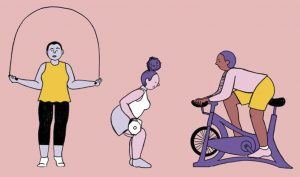Gabriel Winant in The New Republic:
 Barbara Ehrenreich cuts an unusual figure in American culture. A prominent radical who never became a liberal, a celebrity, or a reactionary, who built a successful career around socialist-feminist writing and activism, she embodies an opportunity that was lost when the New Left went down to defeat. Since the mid-1970s she has devoted her work to an unsparing examination of what she viewed as the self-involvement of her professional, middle-class peers: from their narcissism and superiority in Fear of Falling and Nickel and Dimed to their misplaced faith in positive thinking in Bright-Sided. Again and again, she has offered a critique of the world they were making and leaving behind them. She is, in other words, both a boomer and the opposite.
Barbara Ehrenreich cuts an unusual figure in American culture. A prominent radical who never became a liberal, a celebrity, or a reactionary, who built a successful career around socialist-feminist writing and activism, she embodies an opportunity that was lost when the New Left went down to defeat. Since the mid-1970s she has devoted her work to an unsparing examination of what she viewed as the self-involvement of her professional, middle-class peers: from their narcissism and superiority in Fear of Falling and Nickel and Dimed to their misplaced faith in positive thinking in Bright-Sided. Again and again, she has offered a critique of the world they were making and leaving behind them. She is, in other words, both a boomer and the opposite.
At first glance, her new book, Natural Causes, is a polemic against wellness culture and the institutions that sustain it. What makes the argument unusual is its embrace of that great humbler, the end of life. “You can think of death bitterly or with resignation … and take every possible measure to postpone it,” she offers at the beginning of the book. “Or, more realistically, you can think of life as an interruption of an eternity of personal nonexistence, and seize it as a brief opportunity to observe and interact with the living, ever-surprising world around us.” With a winning shrug, she declares herself “old enough to die” and have her obituary simply list “natural causes.”
Ehrenreich contemplates with some satisfaction not just the approach of her own death but also the passing of her generation. As the boomers have aged, denial of death, she argues, has moved to the center of American culture, and a vast industrial ecosystem has bloomed to capitalize on it.
More here.
